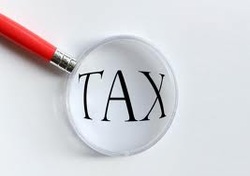
The fundamental benefit of tax deferral is rather straightforward - if taxes have to be paid someday, the longer that day can be deferred into the future, the more time that the taxpayer can have those dollars working on his/her behalf instead. For instance, if an investment purchased for $100,000 has appreciated to $150,000, then at a 15% long-term capital gains tax rate, the owner will someday owe a $7,500 tax bill (a 15% liability on the $50,000 gain); however, to the extent this $7,500 can remain invested, rather than being sent to Uncle Sam, the investor enjoys compounding growth on $150,000 instead of only $142,500. With an 8% growth rate, the investor can generate an extra 8% x $7,500 = $600 of growth each year; compounded over time, this can accumulate to a non-trivial amount of additional wealth, created solely by taking advantage of tax deferral and the "time value of money."
If Tax Rate Will be Lower In the Future
Of course, a key caveat of this benefit is that it assumes the tax rate remains the same throughout. If the reality is that the tax rate is lower in the future, the wealth creation can be even greater; for instance, if the $50,000 gain is deferred to a time period where the taxpayer has no other income and is partially or fully eligible for the 0% long-term capital gains tax rate, then the $7,500 tax bill isn't just deferred for $600/year of economic value; some or all of that $7,500 tax liability may be permanently avoided. Similarly, if the individual might have been subject to a 23.8% long-term capital gains rate this year - due to the top 20% capital gains rate, plus the 3.8% Medicare surtax - and would only be subject to a 15% tax rate in the future, the value of tax deferral is not only compounding growth on Uncle Sam's share, but the fact that the tax bill in the future may be outright smaller than it is today if the tax rate is going to drop.
If Tax Rate Will be Higher In the Future
However, the caveat is that in some situations, the future tax rate is not equal, nor lower, but higher; in such circumstances, the higher tax rate in the future can undermine some or all of the economic value of tax deferral in the first place. For instance, if the taxpayer's rate was 15% now, but 23.8% next year, the liability of that $50,000 gain is about to go from $7,500 to $11,900! In such a scenario, merely generating $600 of tax deferral value means the investor actually ends out with less money by deferring taxes. The optimal strategy would have actually been to recognize the gain now, and to go ahead and pay the $7,500 tax liability today, rather than push the income into the future at a higher rate!
The Reality of Future Tax Rate
And unfortunately, the reality is that the potential for higher tax rates in the future is a reality that many people face. In part, this is due to the simple fact that tax brackets themselves increase as income rises; accordingly, the larger an IRA grows, the greater the risk that it will have to be liquidated in the higher tax brackets in the future, as eventually huge Required Minimum Distributions (RMDs) actually force the taxpayer into the upper brackets. Similarly, in a world where there are now effectively four capital gains tax brackets, the same problem applies for capital gains as well; if investors do too good of a job harvesting losses and deferring gains, when it actually comes time to liquidate and sell the investment, the tax bracket may be driven so high that there is actually less money as a result of deferring the tax bill!
The Optimal Tax Planning
Accordingly, "optimal" tax planning is less about just deferring and deferring and deferring taxes, and more about trying to time the income to the year when the tax rates will be lowest. Sometimes that means pushing the income out to the future, but in other circumstances the best way to save on taxes may be to choose to pay them now, at current rates, rather than paying at higher rates in the future. In essence, this creates an opportunity for "tax bracket arbitrage" - a form of free wealth creation by making well-timed decisions about when to recognize income for tax purposes.
In our next blog, we will discuss the tax arbitrage through Roth conversions.

 RSS Feed
RSS Feed
